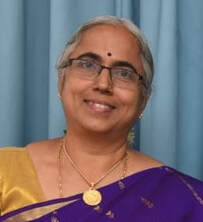|
Short Fiction ~ Stephen Smythe First Prize, Strands International Flash Fiction Competition - 20 You’re legging it through the back alleys of your childhood estate, training for the West Yorkshire Marathon, when you crash into an old man, sending him sprawling. You gulp, scared you’ve hurt him. As you go over to help, you realise the crumpled heap between the bins isn’t an old man, after all – it’s Jacko, the boy who made growing up around here hell. Except now he must be fifty-two – you’ll never forget he’s two years older – and his flaming mop has turned white, his angry crimson cheeks pale, his fierce blue eyes watery and widening as though he’s seen a ghost. But you’re real and, hands on hips, you’re panting. Even as you tower over him, you have to tell yourself not to be daft – this shell of a man can’t hurt you. He eases himself onto his elbows. He doesn’t seem injured, but you chide yourself for even caring. Frowning, he looks you up and down. He knows who you are, alright, even though he’s not seen you since you left for university. He holds out his shaking hand and you yank him up. Despite your soaking sweatshirt, his pong overrides anything else, the stench of chip fat, whisky and weed coming from the army surplus greatcoat swamping his skinny frame. You wait for him to speak, to explain himself. All he does is look away. You always thought he was taller, even when you shot up past him at sixteen, but he’d been bullet-headed and barrel-chested with arms like Popeye. He called you names for years – weirdo, freak, wimp – chased you, pushed your face into the muddy field when he caught you, kicked you up the arse for laughs, but it was on this spot where he humiliated you the most. That summer day couldn’t have started better. You’d had a letter saying you’d passed ten O-Levels. Your dad gave you twenty quid and you went to town and bought a cream Ben Sherman shirt. In the evening you went to The Regal with Joanne Carter. You’d liked her for ages, but she had to ask you out because you were too shy. After the film, you walked her home and she slipped her hand into yours. You turned into a back alley – this back alley – and like now Jacko was waiting, only he was with Skinner and Nudge, all three leaning against the wall blowing smoke rings. As you tried to go past, Jacko blocked your way. You shifted to get around him, but he shuffled across so you couldn’t. He curled his lip and put his cigarette out on your arm, burning a hole in the sleeve of your new shirt. The other lads guffawed as you yelped. Joanne squeezed your hand, and you both edged forward. Jacko sneered and said to her, ‘Why are you with that wimp?’ She looked at you, maybe hoping you’d do something, but all you did was stammer. ‘Oh, I forgot,’ Jacko said. ‘You’re a slag.’ ‘Get lost, carrot head,’ she said. Jacko tugged her ponytail and she yelled. For a moment, you forgot your fear. ‘Leave her alone!’ He let go of her, but rabbit punched you instead. The scorching pain seared through the back of your head, and you staggered before keeling over. He bellowed, ‘Let’s see what the wimp’s got.’ Skinner grabbed you in a chokehold, putting you on your back, while Nudge pinned your arms. You writhed in vain to cover yourself as Jacko pulled down your jeans and underpants. They pointed, in hysterics, while Joanne screamed, ‘Stop it!’ Your cheeks burn as you remember. You want him to look you in the eye, see you’re not frightened anymore. You spit out his name. ‘Jacko.’ He reaches inside his greatcoat and pulls out a packet of cigarettes. His hand trembles as he lights up. He blows smoke out of his nostrils like an impotent dragon. His voice is thin. ‘I’ve not been well. Had the flu.’ And the rest, you think. Booze, fags, drugs. No wonder he’s got the shakes. ‘My missus died last month,’ he says. ‘Lung cancer.’ You bet he was husband of the year. Now he wants you to feel sorry for him. It starts to rain, but you’re going nowhere. ‘Why did you treat me like that?’ He looks at the ground and sniffs. ‘It were a long time ago. I were nowt but a kid.’ ‘Huh. Some kid. More like an eighteen year old hod carrier, that night with me and Joanne Carter.’ At least he blushes when you mention Joanne’s name. There’d been no second date. You’d spent longer than you wanted trying to figure out why he’d tormented you. You even had therapy. Was it because you went to the grammar school? Or was it that you had no mum? Or your dad was in a wheelchair? Eventually, you stopped speculating. Even though you came across bullying with your job, you thought you’d got over Jacko. He flicks away his cigarette and coughs so hard he hacks up a clump of yellow snot. He puts his hand on one of the bins for support and comes round. ‘Well, I’ll be going.’ You shuffle across and block his way. He looks up at you. His thin voice deepens. ‘What’s going on?’ You sweep your hair off your forehead to stop the rain dripping into your eyes. ‘Why did you do it?’ His greatcoat is sodden. He fumbles for his cigarette packet, this time offers you one, but you wave it away. He curls his lip. ‘Never had any vices did you? Still a goody-goody.’ ‘Here’s me thinking you might feel a bit sorry.’ ‘Why should I? Hear you’ve done alright for yourself, Mr. Headteacher.’ The fractured sound of a detuned radio escapes from somewhere. There’s nobody else around, only ghosts. You’ll let him finish his cigarette, wait until he stops coughing his guts up, before you rabbit punch him. ~  Stephen Smythe is a Mancunian writer. In recent years he has been shortlisted for the Bridport Prize (Flash Fiction category), longlisted for the Bath Flash Fiction Award, came third in the Strands International Flash Fiction competition, and completed an MA in Creative Writing at Salford University. In 2022, he won the Bangor Literary Journal FORTY WORDS competition. His debut book, ‘Looking for Love,’ 40 x Forty Word stories, was published in 2023 by The Red Ceilings Press. Later that same year, his Novella-in-flash, The Night Shift, was published by Flight of The Dragonfly Press.
6 Comments
Second Prize, Strands International Flash Fiction Competition - 20 The Spy Chief eats a meal a day. Two years ago, he read a study on longevity that suggested that mice that consumed their food in a single sitting evolved to have better use of fat stores than their peers, elongating their lifespans. He flew the author of the paper first-class from Wisconsin and spoke with her for seven hours, for which she was paid the equivalent of a month’s salary. Since then, the single meal has become part of his daily routine, along with an hour in a flotation tank, extreme cardio sessions and prolonged exposure to UV light from a lamp developed by NASA. He consumes a precise number of calories and complex carbohydrates at daybreak, usually while digesting intelligence reports or sealed confessions from the night before, finding satisfaction in the way discipline has reshaped his biology. He no longer experiences hunger and is close to eliminating any physical response from consumption – no anticipatory salivation, no pleasure or memory triggers from specific combinations of salt, fat, and heat. Today, he is sitting on the terrace of his villa picking at a combination of dark leaves, baked salmon and electrolyte supplements. The speakerphone is on, and a succession of lieutenants talk through current surveillance details, their voices drifting into the canyon below. The Spy Chief alternates between his pen and chopsticks, scribbling notes next to names and then stabbing into the bowl. “What news of Kishorilal Sethi?” he asks, leveraging a small lump of protein from his teeth with his tongue. Sethi is the son of Krishna Sethi, who was already under house arrest when the Chief was but a rising star in the National Safekeeping Authority, as it was known at the time. The reporting officer, who is new in the role, stumbles slightly over the details, but it seems as though the epigone’s movements are being documented satisfactorily. The younger Sethi has taken a quiet teaching role far from the city, seeking refuge among adolescents’ equations. “Keep watching the boy but stay out of sight,” he tells the officer. “Whenever the rats in this family feel comfortable, their thoughts turn to sedition. Let him get fat and restless in his classroom, then we’ll take him.” The briefing finishes shortly after. He takes the opportunity to smuggle a warning into his commentary. “Gentlemen, be sure to stay vigilant. Our job is to make sure that the unexpected always arrives.” He clicks the ‘Off’ button with the base of a chopstick. His bowl is empty too, aside from a single strand of fish flesh. It is early, and the morning is creeping over the mountains. The Spy Chief stands and examines his shadow on the terracotta floor. Still lean at 50. Barely out of puberty on his personal timetable, at a time when his contemporaries are collapsing into middle age, clogged arteries and cholesterol signalling the inevitability of their decline. And his enemies? If the science is successful, he thinks, if the medical interventions, and calorie plans, and longevity therapies do what they are designed to do, then he will be able to remain in the job until he is 150 years old. He will have time to oversee lifelong surveillance for Krishna and Kishorilal Sethi, and whatever luckless grandchildren they bring into the world. It will be possible to inflict three or maybe four generations of defeat upon a single family, something even his wiliest predecessors would have struggled to achieve. The phone judders with messages, his lieutenants jostling to subtly denounce their colleague, the agent who spoke too little and stammered too often. They picked up on the Chief’s last comment and are trying to turn it to their professional advantage, suggesting that their colleague might be insufficiently committed to the cause, that his duties could be profitably reallocated. He selects his lieutenants for their ruthlessness, so expects no less. This is the world we are building; he thinks. This is what time and technology make possible. We are giving seed money to technology start-ups, so that we will have access to the data generated from every device they produce. We are planting listening equipment in the foundations of new estates, to better learn a community’s daily intimacies from the day they move in. The absurd whimsy of the situation delights him, the idea that no detail in this country or its neighbours will ever escape his attention again. His people have always been beset by troublemakers and freedom fighters, but the momentum of history is entirely on his side now. Absolute knowledge and absolute power for another century and beyond – all thanks to a meal a day. He scoops the last sliver of baked salmon and flicks it into the air with a chopstick, his reactions and aim sharpened by daily isometric exercise. The Spy Chief leans his head back, opens wide, determined to catch it, to master every moment of his prolonged and pitiless life. Inside the fish, an unnoticed shard of bone shifts, caught by the gravity of destiny. The Spy Chief’s throat, lean through extreme cardio and intermittent fasting, is not quite wide enough for the task. The unexpected arrives. ~  Edward Barnfield is a writer and researcher living in the Middle East. His stories have appeared in Triangulation, Third Flatiron, Galley Beggar Press, The Molotov Cocktail, Tenebrous Press, Leicester Writes, Strands Publishers, Cranked Anvil, and Shooter Literary, among others. He’s on X at @edbarnfield Short Fiction ~ Sudha Vishwanathan Third Prize, Strands International Flash Fiction Competition - 20 Savitri aunty hummed a melodious rendition of the late Carnatic music maestro, MS Subbulakshmi, as she carefully kept her sarees from the neatly arranged cupboard into suitcases. I watched in awe at the exquisite collection. I have often seen aunty draped in those lovely sarees when she visited the temple or attended a wedding alongwith uncle. Pointing towards a saree with a beautiful combination of navy blue and pink border, she mentioned with a blush on her wrinkled face, 'This is my wedding saree.' I expressed my admiration for the texture and durability of the nine-yard saree, marveling at the unfaded zari borders. Aunty explained that in her time, women wore the nine-yard saree on all auspicious occasions, unlike the present generation. Despite of repeated usage, the unfaded zari stood testimony to the flawless work in those days, nearly five decades ago, she avered. Recounting the instances when she wore the saree, Savitri aunty shared how her co-sisters envied her for possessing such a unique piece, unlike their monotonous red wedding sarees. Aunty rolled her eyes dramatically as she described how her father had bravely deviated from the tradition of red sarees, facing opposition from other family members. Running her fingers fondly over a six-yard silk saree with a lotus color and a green border, she started sharing the story behind it. Her husband had gifted her this saree during her eighth month of pregnancy, and it had attracted attention and sparked discussions among relatives about her husband's love for her. Upon the birth of their son, her husband had gifted her another exquisite six-yard silk saree. She displayed that one too with utmost delight. “Uncle had earnestly requested me to continue wearing the silk sarees even after he would be gone. He didn't want me to stick to age old traditions wherein a widow has to wear only sober clothings.” Tears rolled down her cheeks as she missed her better half, who had passed away the previous year at the age of 77. “I do not wish to disappoint his kind soul. I feel he is watching me from wherever he is. That is why I am taking these sarees alongwith me.” She wiped her moist eyes. Aunty's son Rajan who lived abroad was scheduled to arrive in India today and had assured her that she wouldn't be staying alone in her house any longer. He had also indicated about having finalized the sale of the house. Savitri aunty always spoke fondly of her only son, daughter-in-law, and her two grandchildren. The septuagenarian's life revolved solely around them. A week ago, Aunty had said that she would need my help in packing her bags and organizing final wrap up of things in her house. With pride lit large on her face she explained that her son was to come only for a day to take her. I had taken the day off from work to assist her in packing. Her fondness for various coloured combination sarees became evident as I arranged her suitcases. She then handed over a beautiful saree to me. It was an off white one with maroon border. “Keep this as a gift from me, and do wear it on some occasion. It will remind you of me.” I assured her that I didn't need any momento to remember her. Though we were neighbours, aunty had been more like a mother figure to me. After my parents passed away in an accident and in the same year when I got separated from my husband, both uncle and aunty had been like pillars of support. “Keep it,” she said. “You need to wear sarees often. What if you are single now, someday you will find someone.” She sounded very confident. At 45 my hopes of finding a compatible partner had wanned. A faint smile escaped my lips. As we were clearing the kitchen Savitri aunty asked me to take any extra groceries and perishable items, teasing me about my lack of cooking skills. “I have seen the food delivery persons at your doorsteps very often.” She chided me lovingly. I hardly bothered to cook. Preparing a meal for a single person according to me was a cumbersome job, but Savitri aunty opposed my theory vehemently. She was an excellent cook and would prepare small quantities with utmost precision. She had infact suggested that I should share her meals everyday. Many a times she had offered me her delicious preparation, but I would decline to accept it at times, feeling embarrassed. That wouldn't discourage her and every other day she would be at my threshold with some food whose aroma forced me to give up on my stubbornness. I smiled as I envisaged aunty wearing the pretty silk sarees and preparing delicious food in her son's house. I was almost certain that she would garner admirers there with her charming versatile personality. Just as we finished arranging the suitcases, Rajan arrived. He seemed confused at the sight of the luggage. “Ma, you don't need to carry your sarees. They have a uniform there for everyone. Elder ladies like you are given a flowing gown in blue and white while men have similar colour combination of shirt and trousers. I have chatted with them and understood how well they take care of elderly people.” As the reality dawned upon her, aunty's face showed a mix of emotions, realizing that she wouldn't wear her beautiful sarees anymore and that her son had made this decision for her without bothering to consult her. She struggled to camouflage her disappointed behind an enforced smile. My eyes blurred out at the sight of aunty wearing a simple gown and sitting idle all alone. Without uttering a word I picked up the suitcases and gestured to aunty to follow me. I shall not need the food delivery persons anymore. Cooking for two would be fun that too under the auspices of a lady like Savitri aunty. We entered the threshold of aunty's new abode. ~  Mrs.Sudha Vishwanathan, a professional tutor, took to writing as a hobby. She generally writes short stories but has also received accolades for her poems. Many of her short stories have been published in the Woman's Era magazine. Her stories and poems have appeared in anthologies. Soul-stirring articles on true-life incidents she wrote have been published on the TOI online page. She actively participates in many fiction writing forums and has won quite a few accolades. She has won the TMYS story award for her inspiring story, "The Daughter." Short Fiction ~ Birgit Solvsten D'Alpoim Guedes Honourable Mention, Strands International Flash Fiction Competition - 20 A tall African man with long, lean limbs wearing nothing but a leopard skin thrown over one shoulder, and tied around his waist hung a string attached to the small piece of animals fur that barely covered his private parts. His head, a perfect ebony sculpture with fine high cheekbones looked down at me from large anxious eyes. Dressed only in pantaloons that were much too small, I reached no taller than his hipbone. We both stood there, almost naked, in the bright sunlight. It was warm and white Jasmine flowers bloomed fragrantly along the garden fence. Across the road the golden veld already had green shoots appearing among the elephant grass and the air smelt of spring in the way that only the high veld does from that first rain after a long dry winter. He spoke to me in his mother tongue as he tapped his long black stick on the pavement, his other hand indicated in a sweeping motion to the newly built houses along our side of the street, then he looked down at me with a flicker of hope in his eyes followed instantly by a fearful, haunted look as he let out a loud breath. Again he tapped his stick, harder this time and with more anger in his tone. I understood enough Zulu to know that he was looking for his daughter, who must have worked as a servant in one of the houses. She had not come home for a long time. My eyes widened with fear, not of him but a fear for him. I stood there, very young, looking up into his eyes as I remembered the recent darkness in our home when my brother disappeared. Those eyes were the eyes of my parents. It was the mid 1950's, my brother walked through wild countryside in South Africa, crossed the Crocodile River and made his way over the border to Mozambique where he was found several months later attempting to board a ship at the port in Lourenco Marques. He was barely twelve years old, unhappy and determined to go back home to Denmark. I shook my head and our eyes locked in tears. He touched me gently on my hair and that noble Zulu man who had no one to ask except a small child, turned and walked away wearing nothing but his traditional clothing to continue his search for his missing daughter in that cruel City of Gold so hostile to Africans. I never forget his eyes or what I stumbled on in the koppies four years later. There was a graveyard, where houses now stand. There was a graveyard, where no gravestones were found. There was a graveyard, with only a round hole in the ground. There was a graveyard, with blood all around. There was a graveyard, my dog and I found. ~  Birgit Solvsten D'Alpoim Guedes was born where two seas meet in Northern Denmark but have since lived on four continents in several countries. She now resides in the Val De Cher in Central France surrounded by vineyards, Chateaux and Castles. She has had a story published in The Morning Musings on Medium 'I Am an Artist', a micro in Scribes FairField magazine; 'The Squabble' and Longlisted for 'Mortal Sin' with The Propelling Pencil. |
StrandsFiction~Poetry~Translations~Reviews~Interviews~Visual Arts Archives
April 2024
Categories |
 RSS Feed
RSS Feed